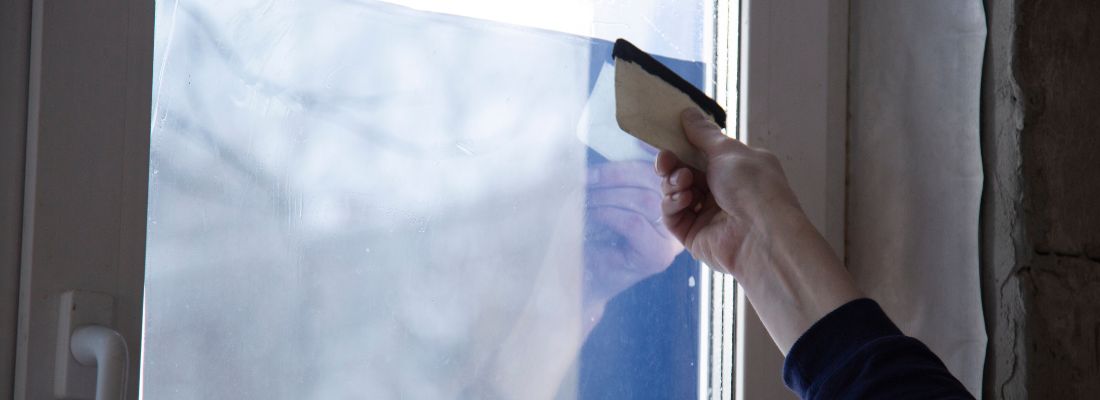
Looking for ways to save money on your taxes? Consider installing window film! Not only does window film provide a range of benefits for your home or business, but it can also offer several tax advantages.
Here are some key tax benefits you need to know when it comes to installing window film:

1. Non-Business Energy Property Tax Credit: One of the most significant tax benefits of window film is the Non-Business Energy Property Tax Credit. Homeowners can claim up to 30% of the cost of installing window film, up to a maximum tax credit of $1,200, on their federal income tax return. To qualify, the window film must meet certain energy efficiency criteria such as having a Solar Heat Gain Coefficient (SHGC) of 0.23 or less and complying with the International Energy Conservation Code (IECC) version 2015 or later, or the Standard 90.1-2013 of the American Society of Heating, Refrigerating, and Air-Conditioning Engineers (ASHRAE).

2. State Tax Incentives: In addition to the Non-Business Energy Property Tax Credit, many states offer their own tax incentives for energy-efficient home improvements, including window film installations. These incentives may include rebates, tax credits, and exemptions from sales tax on certain products. Some states even provide special financing programs for energy-efficient upgrades.

3. Commercial Tax Deductions: For businesses that install window film, the cost of the installation may be fully deductible as a business expense. This means that the full cost of the window film installation can be deducted from your business's taxable income. However, it is recommended to consult with a tax professional to determine the specific tax implications for your business.

4. Increased Property Value: While not a direct tax benefit, installing window film can help increase the value of your property. Energy-efficient upgrades such as window film can make your home or business more attractive to potential buyers or tenants, which can lead to a higher resale value. This can be particularly advantageous if you plan to sell your property in the near future.
In conclusion, installing window film can provide a range of tax benefits for both homeowners and businesses. From the Non-Business Energy Property Tax Credit to state incentives and increased property values, there are numerous ways that window film can help you save money on your taxes. However, it is crucial to consult with a tax professional to determine the specific tax implications for your situation. Start enjoying the benefits of window film today and maximize your tax savings!
To maximize your tax savings with window film, it's important to follow these steps:
1. Choose the Right Window Film

To qualify for the Non-Business Energy Property Tax Credit and state tax incentives, it's essential to choose the right window film. Look for products that meet the necessary energy efficiency criteria, such as a low SHGC and compliance with the relevant energy codes.
2. Keep Accurate Records
To claim any tax benefits related to your window film installation, you'll need to keep accurate records of the installation and the cost of the product. This may include receipts, invoices, and proof of compliance with energy efficiency criteria.
3. Consult with a Tax Professional
To ensure that you're taking full advantage of all available tax benefits and meeting all necessary requirements, it's crucial to consult with a tax professional. They can help you navigate the complex tax rules and regulations related to window film installations and ensure that you're making the most of the available tax benefits.
A tax professional can also assist in determining which tax incentives and credits are available in your state and how to properly apply for them. For example, some state tax incentives for energy-efficient upgrades require pre-approval or a certification process, which a tax professional can help you navigate.
Furthermore, if you're a business owner, a tax professional can provide guidance on how to properly deduct the cost of window film installation from your business taxes. They can also advise you on any additional tax benefits or deductions available to your specific type of business.
Overall, consulting with a tax professional can help ensure that you're maximizing your tax savings and avoiding any potential penalties or fines for improper tax reporting. So, be sure to schedule an appointment with a qualified tax professional before you file your taxes to make the most of your window film installation tax benefits.
Conclusion
In conclusion, installing window film is a smart investment that not only offers a range of benefits for your home or business but can also provide significant tax advantages. From the Non-Business Energy Property Tax Credit to state incentives and increased property values, there are numerous ways that window film can help you save money on your taxes.
It's important to note that there are certain criteria that must be met to qualify for these tax benefits, such as the energy efficiency standards required for the Non-Business Energy Property Tax Credit. It's also essential to consult with a tax professional to ensure that you're meeting all necessary requirements and taking full advantage of the available tax benefits.
Ultimately, installing window film is a win-win situation for both you and the environment. Not only will it reduce your energy costs, increase your property value, and provide numerous other benefits, but it can also provide significant tax advantages. So, if you're considering a window film installation, now is the time to take advantage of these tax benefits and maximize your savings.